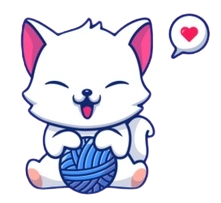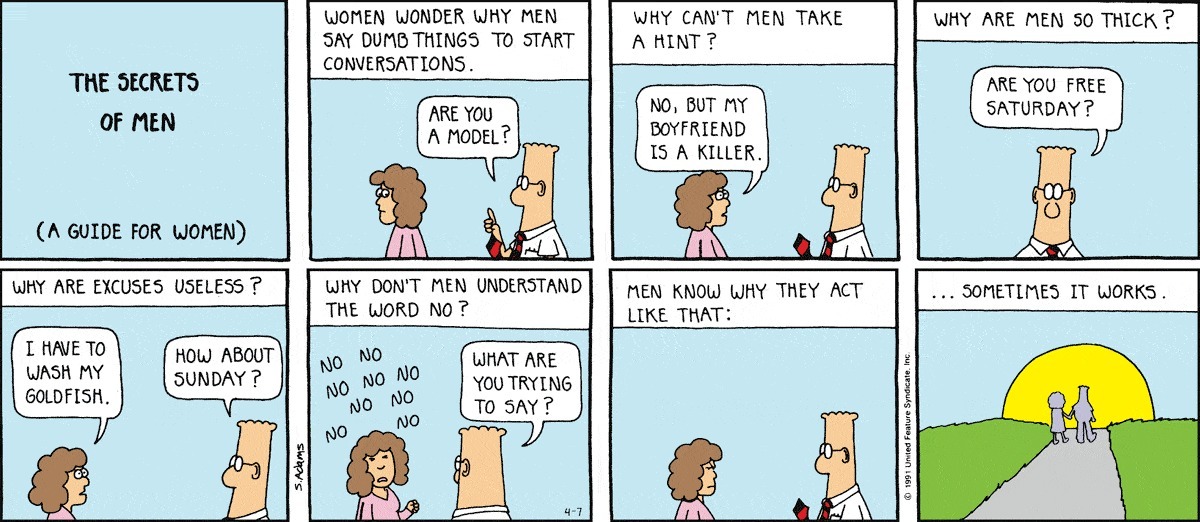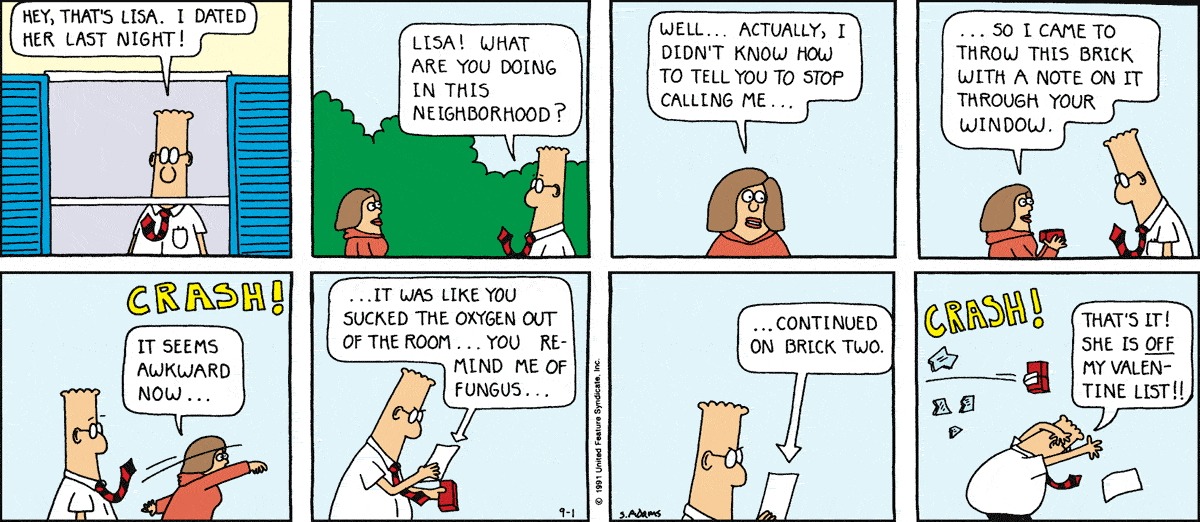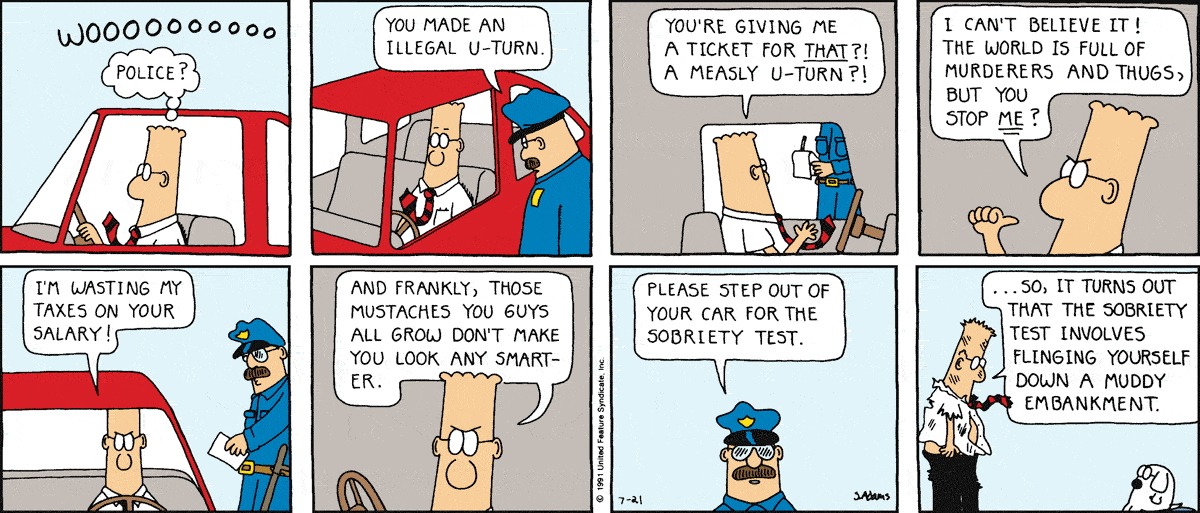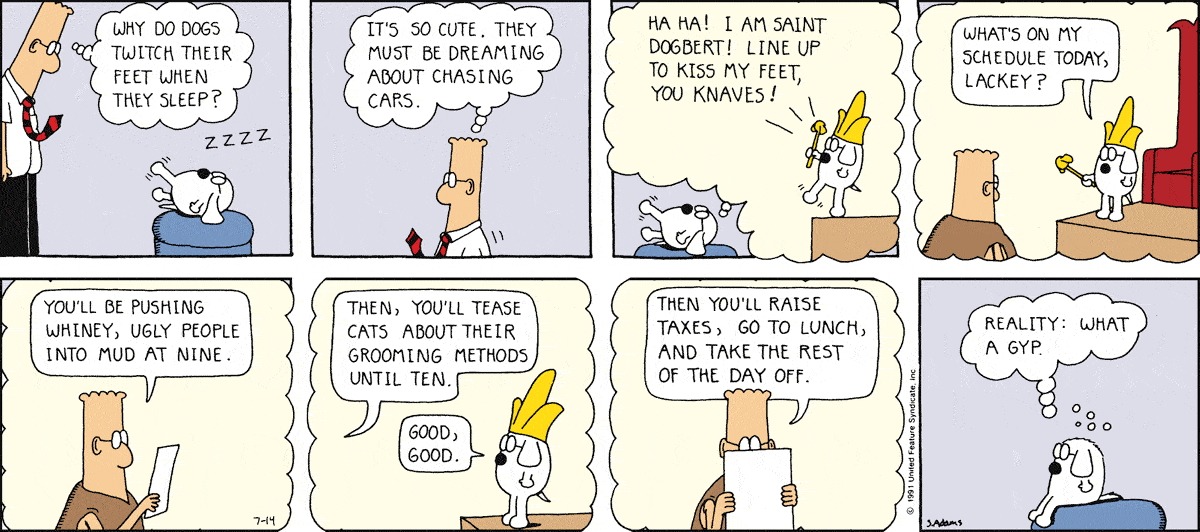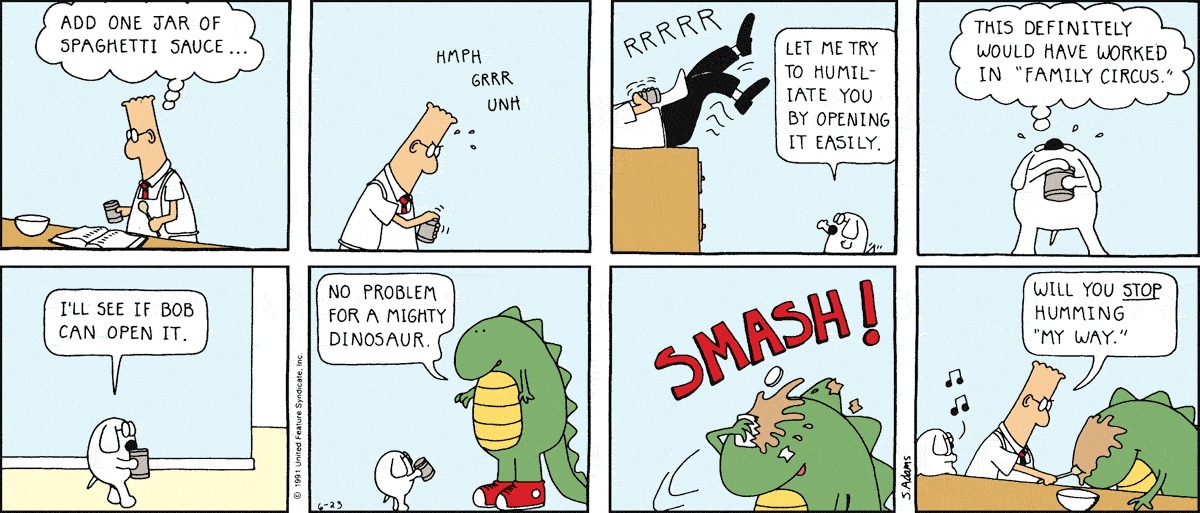Dilbert is one of those comics that has carved out a special place in the hearts of readers by depicting the often frustrating reality of office life with an unrelenting sense of humour and piercing wit. The strip, created by Scott Adams in 1989, chronicles the daily mishaps of a mild-mannered engineer named Dilbert, whose logical thinking is perpetually at odds with the illogical world of corporate culture.
Best Comics To Laugh
The comic’s appeal stems from its honesty and ability to represent common concerns with bureaucracy, bad management, and workplace absurdities in a way that is both genuinely sympathetic and continuously entertaining.
Source & Credit: Scott – Dilbert
Disclaimer: The comics showcased on our platform are the intellectual property of their creators. Our aim is to share these remarkable works with a broader audience. If any artist feels their work is not appropriately credited or is being misused, please contact us promptly for resolution. We respect the rights of creators and are committed to addressing any concerns swiftly.
#1
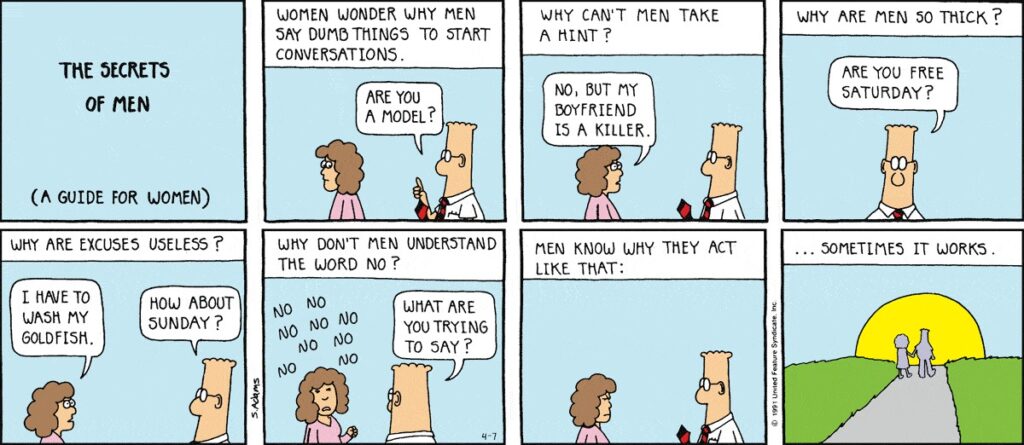
#2
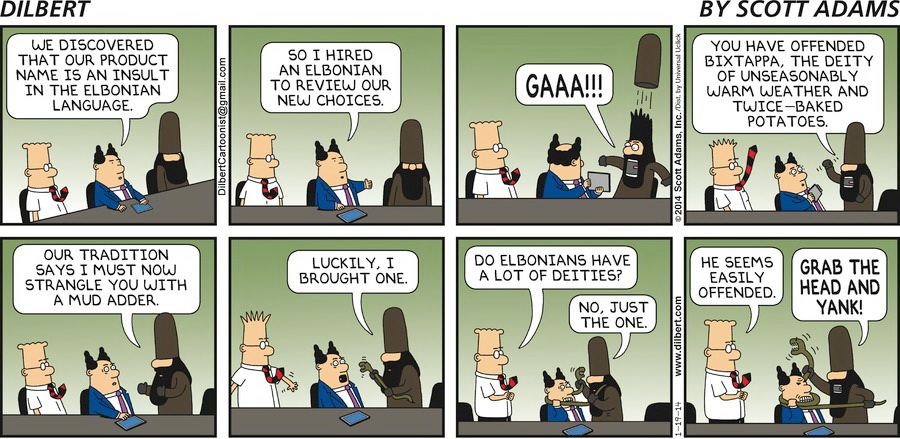
#3

#4

Around Dilbert are characters who contribute to the dysfunction of his environment in hilarious ways. His boss, easily recognized by his pointy hair, is the embodiment of clueless leadership. He never seems to understand the work being done under him, yet confidently makes absurd decisions based on trendy management fads or random intuition.
#5

#6

#7

#8

#9

#10
This character represents a certain kind of real-life boss many people have encountered—someone more focused on looking productive than actually understanding the work or leading effectively. His obliviousness and confidence make him both infuriating and funny, a perfect antagonist for the modern office worker.

#11

#12

#13

#14

#15

#16

As long as there are offices, bosses, meetings, and the complex dynamics of corporate culture, Dilbert will remain relevant. It captures the eternal struggle of the employee trying to survive and thrive in a world that often seems determined to thwart them at every turn. With its sharp wit, memorable characters, and biting social commentary, Dilbert continues to offer readers both a laugh and a deeper understanding of the strange, sometimes maddening world of work.
Through the lens of these characters, Scott Adam explores the absurdities of corporate culture, lampooning everything from mind-numbing meetings and nonsensical office policies to clueless managers and clueless co-workers. Dilbert’s humor is both relatable and biting, offering readers a cathartic release from the frustrations of the modern workplace while also prompting them to reflect on the absurdities of their own professional lives.
One of the key strengths of Comic Strips lies in its ability to capture the essence of corporate life with remarkable accuracy. Scott draws upon his own experiences working in the corporate world to inform his writing, infusing the strip with a sense of authenticity that resonates with readers. Whether it’s the mindless bureaucracy, the soul-crushing meetings, or the nonsensical jargon, Comic Stripcs lays bare the realities of modern office culture with unflinching precision.
Yet, amidst the humor and satire, Comic Strips also offers astute observations about human nature and the dynamics of power and authority. Through the antics of its characters, the strip explores themes of ambition, greed, incompetence, and the eternal struggle between the individual and the institution. Dilbert himself serves as a reluctant everyman, navigating the treacherous waters of corporate life with a mix of resignation and bemusement, offering readers a window into their own struggles and frustrations.
Over the years, Dilbert Comics has evolved to reflect changes in technology, society, and the workplace. From the rise of the internet and the dot-com bubble to the advent of social media and the gig economy, Scott Adams has adeptly incorporated these developments into the strip, ensuring that Dilbert remains relevant and resonant with readers of all ages.
Over the years, Comic strip has evolved to reflect changes in technology, society, and the workplace. From the rise of the internet and the dot-com bubble to the advent of social media and the gig economy, Scott has adeptly incorporated these developments into the strip, ensuring that Dilbert remains relevant and resonant with readers of all ages.
Despite its success, Dilbert Comic strip has not been without its controversies. Scott , the creator of the strip, has faced criticism for his outspoken views on various social and political issues, including gender, race, and the role of government. His willingness to tackle controversial topics head-on has earned him both praise and condemnation, but it has also sparked important conversations about the role of satire in society and the responsibilities of artists and creators.
In conclusion, Comic strip stands as a testament to the enduring power of satire and humor. Through its sharp wit, insightful commentary, and memorable characters, the strip has entertained and enlightened readers for over three decades, offering a humorous yet poignant reflection on the absurdities of corporate life. As long as there are cubicles, meetings, and clueless bosses, Dilbert Comics will continue to be a beloved staple of the comic strip landscape, providing readers with a much-needed dose of laughter and levity in an often bewildering world.
